Recent Blog Posts
What Can You Do if a Nursing Home Gave Your Parent Medicine They Were Allergic To?
 Every nursing home resident deserves to be treated with proper care. Unfortunately, some nursing homes fail to meet this standard, leading to adverse health outcomes. If your parent had an allergic reaction triggered by medication administered by a nursing home, you can take action against the facility by filing a personal injury claim. If your claim is successful, you can recover compensation for the harm your parent suffered.
Every nursing home resident deserves to be treated with proper care. Unfortunately, some nursing homes fail to meet this standard, leading to adverse health outcomes. If your parent had an allergic reaction triggered by medication administered by a nursing home, you can take action against the facility by filing a personal injury claim. If your claim is successful, you can recover compensation for the harm your parent suffered.
However, taking legal action against a nursing home by yourself is far from easy. The nursing home may attempt to deflect responsibility for an allergic reaction, aggressively denying any liability. At Schwartz Injury Law, our Illinois nursing home injury lawyers can help you investigate negligence from the staff and file a personal injury claim on your behalf.
Health Complications Caused by Allergic Reactions
When a medication inadvertently triggers an allergic reaction, the effects can be devastating. Even a mild reaction can result in hospitalization, especially in older individuals with fragile health. Common allergic reactions to medications include:
Clogged Breathing Tubes and Other Mistakes Caused by Nursing Home Negligence
 The degree of care and medical intervention nursing home residents need varies dramatically. Some residents are able to walk, talk, eat, and perform most functions with little assistance from staff. Others are completely immobile and require machines to keep them alive.
The degree of care and medical intervention nursing home residents need varies dramatically. Some residents are able to walk, talk, eat, and perform most functions with little assistance from staff. Others are completely immobile and require machines to keep them alive.
Breathing tubes are often used to supply a resident with oxygen. The breathing tube is attached to a ventilator and serves as an artificial airway for people who cannot breathe on their own. Just like an obstruction in a throat, an obstruction in a breathing tube can prevent the resident from getting enough oxygen. Severe and fatal injuries can be caused by breathing tube clogs and other mistakes.
At Schwartz Injury Law, our Chicago, IL nursing home neglect attorneys can investigate the cause behind a breathing tube injury. We will fight to hold the negligent parties accountable, building a case to prove that the nursing home was at fault for your loved one’s injury. Our lawyers can help you pursue compensation for damages related not only to the resident’s medical care but pain and suffering as well.
How Does a Stage 4 Pressure Sore in a Nursing Home Happen?
 Negligence in nursing homes can have serious health consequences. Pressure sores, or bedsores, are one such example, especially when they are neglected and become infected, leaving elderly residents in agonizing pain and at a greater risk of serious complications. However, the most serious kind of pressure sores - Stage 4 pressure sores - do not happen overnight. Oftentimes, these sores are the result of prolonged negligence and a lack of intervention by untrained or understaffed nursing homes.
Negligence in nursing homes can have serious health consequences. Pressure sores, or bedsores, are one such example, especially when they are neglected and become infected, leaving elderly residents in agonizing pain and at a greater risk of serious complications. However, the most serious kind of pressure sores - Stage 4 pressure sores - do not happen overnight. Oftentimes, these sores are the result of prolonged negligence and a lack of intervention by untrained or understaffed nursing homes.
When these facilities refuse to answer for the harm they cause, an Illinois personal injury attorney can help you take action. At Schwartz Injury Law, our lawyers can identify Stage 4 pressure sores and investigate the cause behind them, pursuing fair compensation for your elderly relative’s injuries. Since our firm was established, we have represented the victims of nursing home injuries and their families in numerous cases, with a long track record of success.
Can Someone Suffer a Traumatic Brain Injury in a Nursing Home?
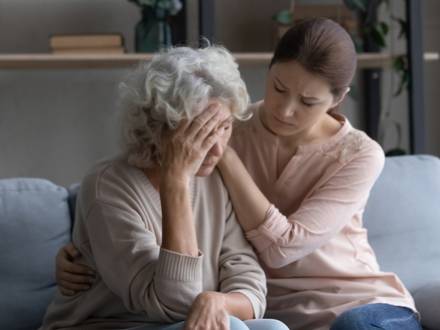 When nursing homes neglect their duty to their patients, the risk of serious injury increases. In some cases, negligence can lead to permanent damage. In particular, traumatic brain injuries can have a lasting impact on cognition and someone’s ability to perform basic tasks. If your loved one has suffered a traumatic brain injury in the care of a nursing home, an Illinois personal injury attorney can help you file a claim against the facility.
When nursing homes neglect their duty to their patients, the risk of serious injury increases. In some cases, negligence can lead to permanent damage. In particular, traumatic brain injuries can have a lasting impact on cognition and someone’s ability to perform basic tasks. If your loved one has suffered a traumatic brain injury in the care of a nursing home, an Illinois personal injury attorney can help you file a claim against the facility.
At Schwartz Injury Law, we investigate accidents resulting in traumatic brain injuries at nursing homes. When you work with our firm, we will gather evidence to build a personal injury claim on your loved one’s behalf. Compensation in your loved one’s personal injury claim can include medical expenses, pain and suffering, and more.
What Is a Traumatic Brain Injury?
A traumatic brain injury (TBI) is a health complication caused by a forceful impact to the head. Short-term symptoms of a TBI may include:
Know the Signs of Improper Nursing Home Restraints
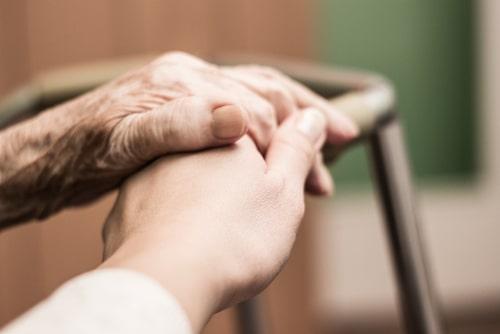 Nursing homes are required to provide a certain standard of care for residents under both state and federal law. The law prohibits nursing homes from using unreasonable physical, chemical, or emotional restraint methods simply because it is more convenient than providing real supportive care.
Nursing homes are required to provide a certain standard of care for residents under both state and federal law. The law prohibits nursing homes from using unreasonable physical, chemical, or emotional restraint methods simply because it is more convenient than providing real supportive care.
Unfortunately, nursing homes are often understaffed and staff are often poorly trained or even abusive. It is essential to recognize signs of improper nursing home restraint methods so if your loved one is showing indications of improper restraint, you can take action right away.
At Schwartz Injury Law, we represent the rights of the elderly in cases of nursing home neglect and abuse. If your aging loved one has been subject to improper restraints in a nursing home, you deserve justice. When you work with us, our attorneys will thoroughly evaluate the conditions at your loved one’s nursing facility to identify signs of mistreatment.
Undiagnosed Neoplasms in Elderly Residents of Nursing Homes
 Elderly people tend to be medically fragile, and the most at risk of developing serious conditions like cancer. We trust nursing homes to handle our loved ones at their most vulnerable, making sure any dangerous illnesses are caught early on and treated promptly. When this duty is neglected, nursing home residents can suffer serious health complications, including neoplasms.
Elderly people tend to be medically fragile, and the most at risk of developing serious conditions like cancer. We trust nursing homes to handle our loved ones at their most vulnerable, making sure any dangerous illnesses are caught early on and treated promptly. When this duty is neglected, nursing home residents can suffer serious health complications, including neoplasms.
An Illinois nursing home neglect lawyer can help you take legal action against nursing facilities that compromise the health of their residents by letting neoplasms fester. At Schwartz Injury Law, our attorneys are dedicated to identifying negligence in nursing homes and building cases for personal injury claims. When you work with us, we will fight for your family’s right to compensation.
What is a Neoplasm?
Neoplasms are better known as tumors, essentially clumps of cells that grow abnormally. Neoplasms often present as lumps on top of the skin and come in various sizes. What makes these growths so dangerous is that they can be cancerous, and, if not swiftly addressed, can spread to other parts of the body.
Improperly Treated Chronic Illness in Nursing Homes Can Lead to Wrongful Death
 Older people are more susceptible to chronic illnesses and debilitating health conditions than most of the population. Nursing homes have a duty to take care of their medically fragile residents, but sometimes, the staff falls short of this responsibility. When serious conditions go untreated by the staff, casualties can occur.
Older people are more susceptible to chronic illnesses and debilitating health conditions than most of the population. Nursing homes have a duty to take care of their medically fragile residents, but sometimes, the staff falls short of this responsibility. When serious conditions go untreated by the staff, casualties can occur.
If you have lost a loved one to an improperly treated chronic illness at a nursing home, you may have a strong case for a wrongful death claim. At Schwartz Injury Law, we have the resources to pursue a lawsuit against negligent nursing homes, making sure that the guilty parties are held responsible for their wrongdoing. Our Illinois nursing home death attorneys have secured numerous victories on behalf of elderly residents and their families, including a $400,000 settlement for the wrongful death of an elderly man with dementia in a care facility.
Understanding Emotional Abuse in Illinois Nursing Homes
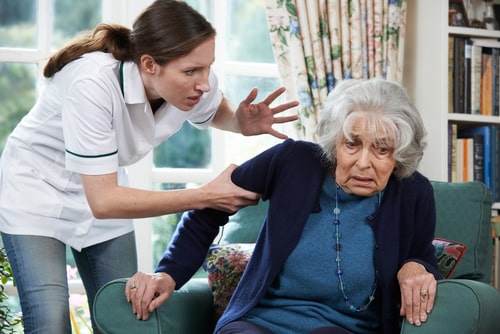 Nursing homes serve as essential institutions that care for our elderly population, providing them with the support and assistance they need in their later years. However, it is disheartening to acknowledge that some nursing homes fail to uphold the high standards of care and respect for their residents, leading to emotional abuse. Psychological torment in nursing homes can have lasting consequences for an elderly person’s health, both mentally and physically.
Nursing homes serve as essential institutions that care for our elderly population, providing them with the support and assistance they need in their later years. However, it is disheartening to acknowledge that some nursing homes fail to uphold the high standards of care and respect for their residents, leading to emotional abuse. Psychological torment in nursing homes can have lasting consequences for an elderly person’s health, both mentally and physically.
If you believe your loved one is suffering from emotional abuse in a nursing home, contact a Cook County, IL nursing home abuse lawyer to begin the process of ending the mistreatment and seeking justice for your loved one. At Schwartz Injury Law, we have a long history of fighting for nursing home residents, with countless victories to show for it. In our prior case results, we have secured significant compensation for abused and neglected elders, giving our clients closure after harrowing incidents.
Can I Prove My Parent Fell Because of Nursing Home Neglect?
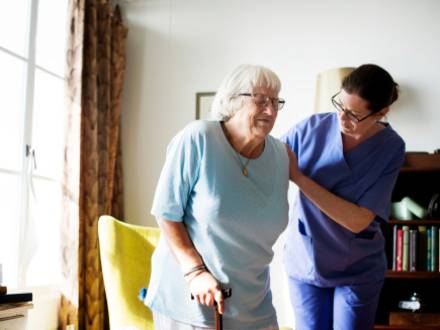 Falls among nursing home residents are the primary cause of injury, hospital admissions, and lawsuits. Falls are also the leading cause of death from injury among those 65 and older, with elderly adults suffering an estimated 29 million falls per year. In fact, about half of all nursing home residents will fall in any given year, leaving some with serious injuries and causing death for others.
Falls among nursing home residents are the primary cause of injury, hospital admissions, and lawsuits. Falls are also the leading cause of death from injury among those 65 and older, with elderly adults suffering an estimated 29 million falls per year. In fact, about half of all nursing home residents will fall in any given year, leaving some with serious injuries and causing death for others.
Falls often go unreported in nursing homes, which means the elderly person who fell must suffer in silence, while his or her loved ones may not even be told about the fall. Even though falls are common for elderly patients in nursing homes, most falls are preventable. Almost one in three elderly nursing home residents who fall will fall again within a year.
Lincolnshire Nursing Home Accused of Neglecting Leg Wounds
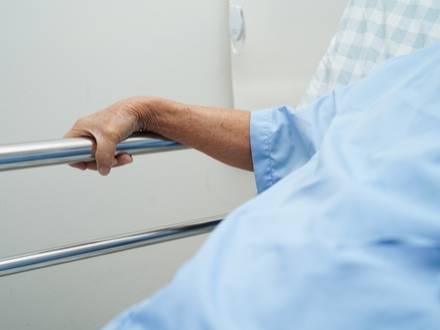 Several months ago, a Lincolnshire nursing home was accused of nursing home abuse and neglect by a woman whose husband died from an infection of his leg wounds. The woman claimed that improper care resulted in her husband’s sepsis and subsequent death. The same facility faced unrelated claims regarding a major staffing shortage that left elderly patients with no medical care for hours.
Several months ago, a Lincolnshire nursing home was accused of nursing home abuse and neglect by a woman whose husband died from an infection of his leg wounds. The woman claimed that improper care resulted in her husband’s sepsis and subsequent death. The same facility faced unrelated claims regarding a major staffing shortage that left elderly patients with no medical care for hours.
The woman stated her husband’s leg wounds (the result of diabetes) were being properly treated when he was first admitted to the nursing home, but that in May 2023, the nursing home changed owners, and the level of care dropped significantly. The woman said her husband's leg wounds were so bad the bones could be seen and that he was transported from the facility to the hospital for confusion and paranoia related to sepsis infection.

 312-535-4625
312-535-4625





